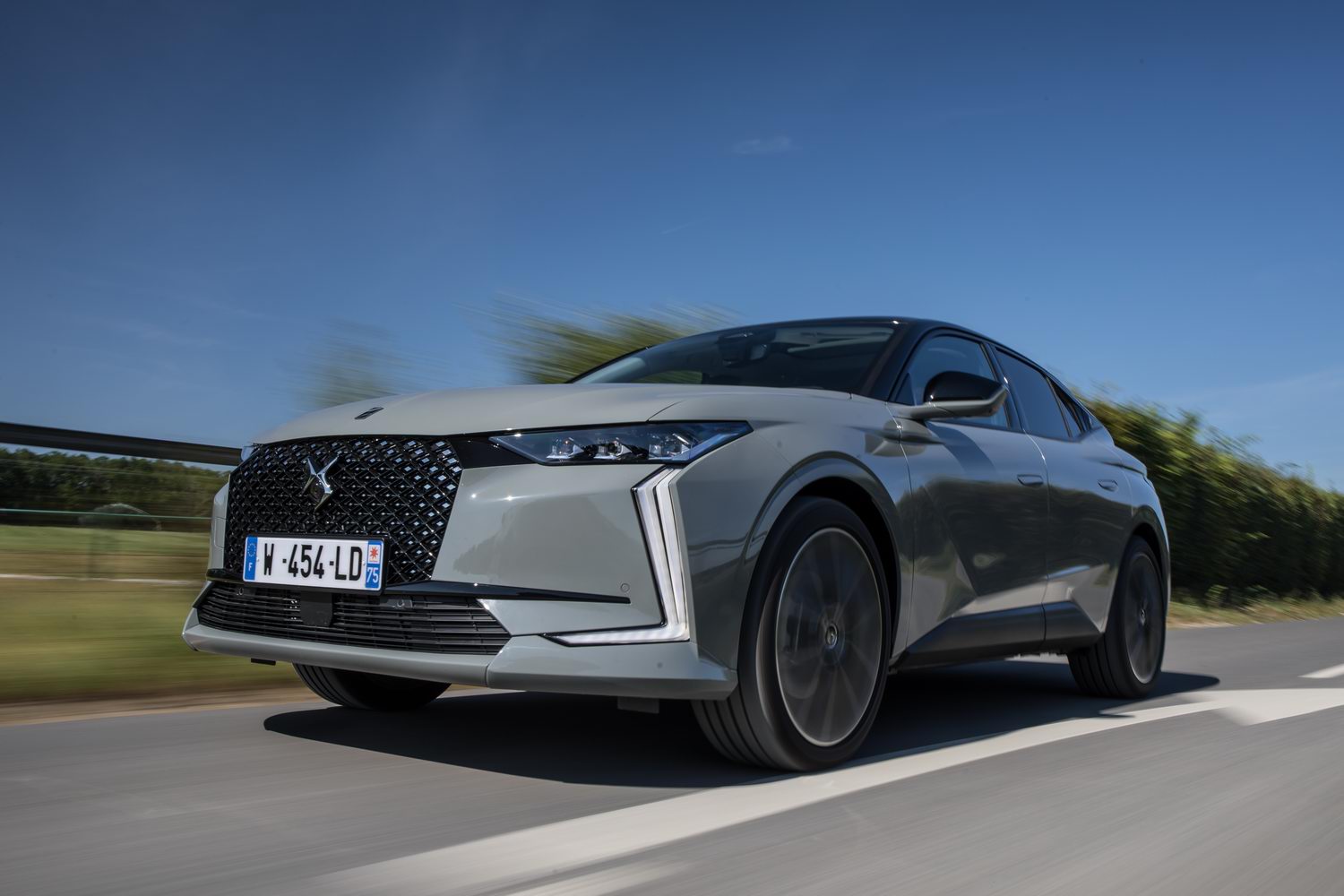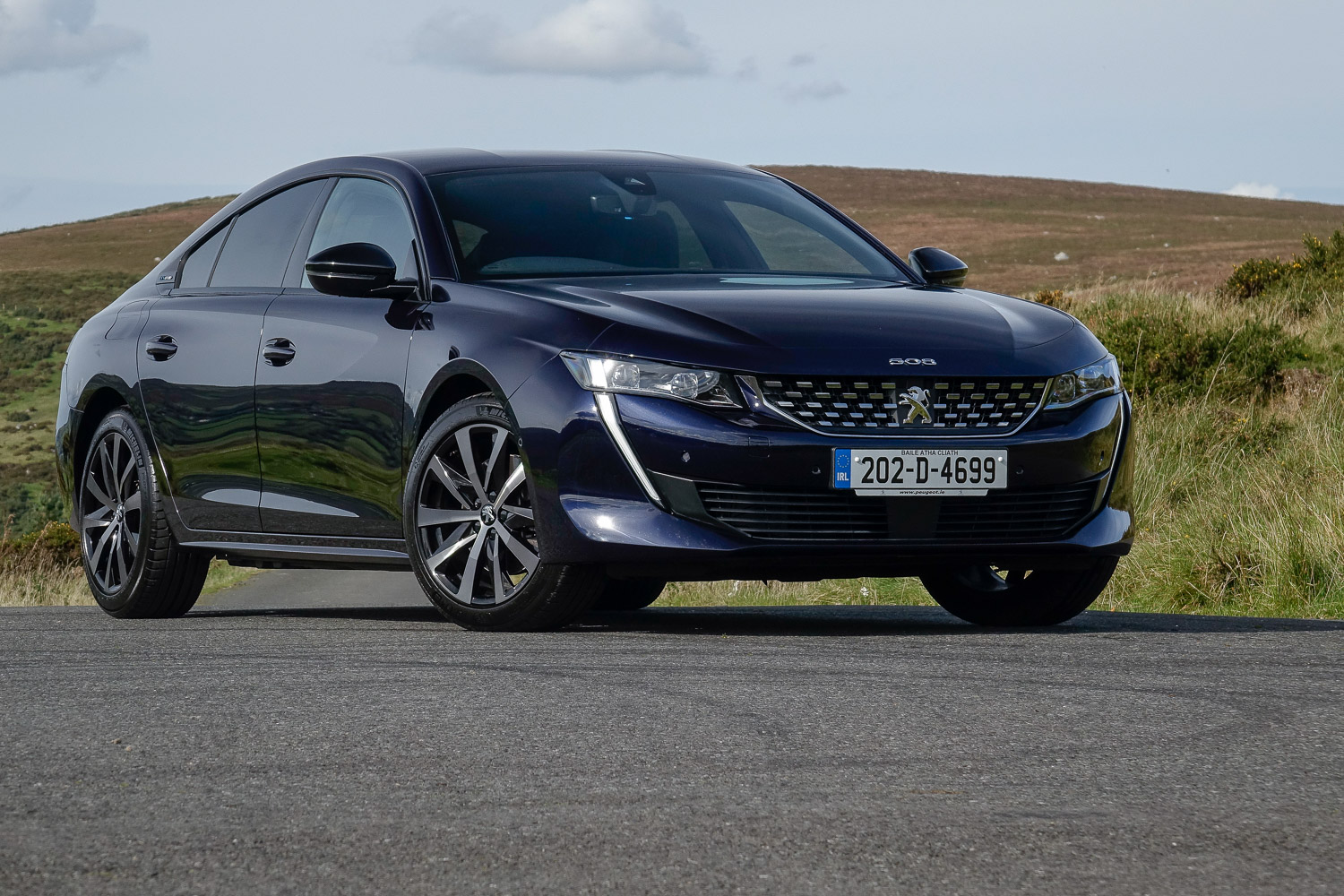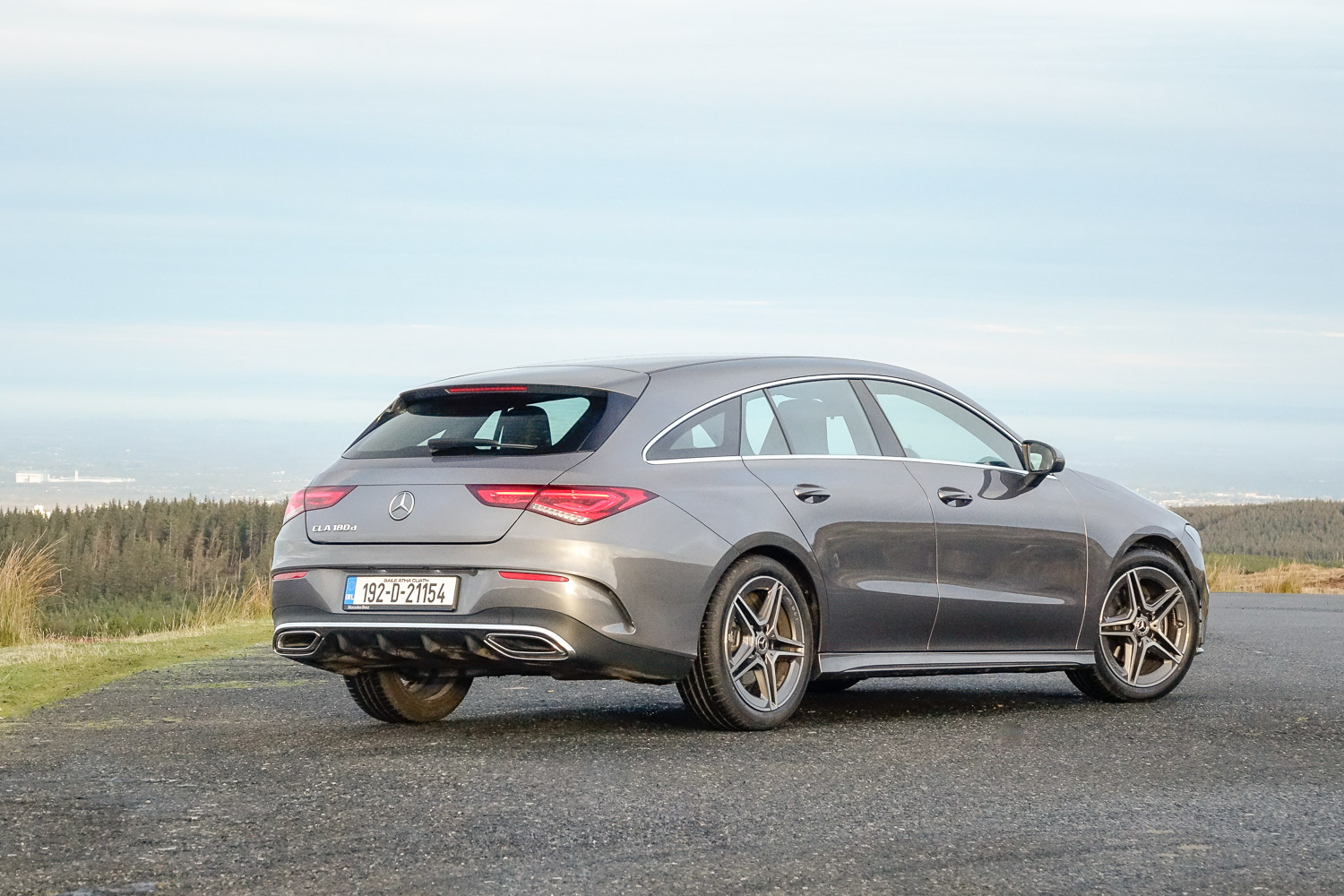The DS 4 essays a particularly French take on luxury motoring - far more about refinement and comfort than cornering sharpness. That's as it should be, but will buyers take to this new crossover hatchback?
In the metal
DS would, presumably, rather we forgot all about the previous DS 4 - a posher take on the bland last-generation Citroen C4 hatchback, which essentially sank without trace in the Irish market. Well, if we're going to forget, then it's good that we have this new DS 4 to push the old one out of our minds.
It's a far sharper, better-looking machine than its predecessor. Pretty? Not really, but imposing in spite of its lack of height. DS has created a crossover-hatchback body for the DS 4, both to exploit the superior aerodynamics of a lower roof and doubtless too because it's possible that at some stage soon, some countries will start bringing in legislation to crack down on tall, boxy SUVs.
The DS 4 certainly strikes a pose, and it's hard not to be beguiled by the neat features such as the glowering LED headlights and that notched rear pillar.
Inside, there's more than a hint of Lexus about the cabin layout, and pretty much every surface is covered in very high-quality leather or suede. All of the switchgear has DS's signature diamond-faceted pattern, and there's even a little wood marquetry inlaid into the tops of the doors in this limited 'La Première' edition. Overall quality seems, on this first look, very good indeed, and comfort in the front seats is truly impressive.
In the back, space is a little less impressive, while the 390-litre boot is only just about adequate. There's also some messy switchgear scattered about (the driving mode switch looks as if it was tacked on at the last minute, for example), but there is in general a very pleasant cabin ambience.
There's also a lot of tech, including a large central touchscreen that can also be partly controlled by a smaller supplementary touchscreen down on the centre console. There's a head-up display, digital instruments (on a curiously small display screen), night vision, active cruise control and lane keeping, and a camera-based system that watches for poor road surfaces ahead and instructs the adaptive suspension to stiffen or soften accordingly.
Nothing here that we haven't seen from other car makers, to be honest, but some of it is new to the compact crossover and hatchback segment, and it's well deployed - the clear, info-rich head-up display is particularly good. Another nice touch is central air vents disguised by tucking them behind the chrome bar that holds the touchscreen shortcut buttons.
Driving it
On French roads, which are apt to be rather better surfaced than their Irish counterparts, the DS 4 glides along in a wonderfully relaxed fashion. That trick camera-based suspension system works really well most of the time, only getting caught out by short, sharp bumps. There's a little bit of tyre roar, but in general the DS 4 sticks closely to the traditional French car template of maximising comfort.
Which is not to say that it's a dead loss in the corners. The DS 4's steering is a little too light and distance for BMW-esque driving fun, but it corners flat and accurately, has plenty of grip (at least it did in the bone-dry conditions of our test drive) and feels pleasingly surefooted.
Refinement is excellent, as is cabin comfort. Much of that is thanks to the modifications and updates made to the EMP-2 platform underneath (you'll also find it under the likes of the Peugeot 3008 and Citroen C5 Aircross), which have stiffened up the structure in a bid to improve noise, vibration and harshness suppression.
Part of that is down to the E-Tense plug-in hybrid system of course. This 225hp setup, built around a 12.4kWh battery and the long-serving 1.6-litre turbocharged petrol engine, is familiar from Citroen, Opel and Peugeot models, but it seems especially efficient here in the DS 4. While you'll have to be plugging it in regularly and making copious use of the official 55km electric-only range to get anywhere near the combined 1.3 litres per 100km fuel consumption figure, in real-world use the DS 4 seems pretty economical all-round.
Over a lengthy test route taking in motorway, country roads and urban streets, we averaged 5.1 litres per 100km, mostly driving in either Comfort or Hybrid modes, with an occasional short burst in Sport mode (a mode that seems exceptionally pointless when you realise just how comfy and relaxing the DS 4 is to drive).
I guess a French car is always going to perform at its best in France, and we'll have to see how the DS 4 stacks up in Irish conditions when the first versions arrive here later this year, but right now it's putting in an impressive performance.
What you get for your money
DS 4 prices start at €35,185 in Ireland, for the basic Bastille+ spec, which includes an automatic gearbox, 17-inch alloys, the big ten-inch touchscreen, keyless ignition, LED headlights and reversing sensors all as standard. That pitches it €10,000 cheaper than a basic BMW X2, and about €8,000 less than the cheapest Mercedes-Benz GLA, which means that in spite of having quite a bit of luxury built in, the DS 4 is offering pretty good value for money.
In top-spec Rivoli form (roughly equivalent to our La Premiere test car) you'll have to spend a fairly whopping €52,530 to get the E-Tense hybrid (although there is a cheaper E-Tense, in Performance Line form, priced from €46,990). The Rivoli includes black leather trim, 19-inch alloys, more exterior chrome, advanced electronic driver aids, a 'clean cabin' microscopic air filter, acoustic glass and 3D connected navigation. Even at that price level, a Rivoli-spec E-Tense DS 4 is actually well-priced against the likes of the Mercedes-Benz GLA 250 e hybrid, and feels subjectively much more overtly luxurious than the Mercedes.
Summary
DS has its work cut out convincing the wider world that it is a brand with relevance beyond misty-eyed memories of the original 1955 Citroen DS saloon. In a crowded premium crossover segment, the DS 4 in particular will need to work hard to stand out. It is certainly hitting all the right marks, though - it's undeniably stylish, hugely comfortable and has the technology and the quality to compete with the German Big Three.
























